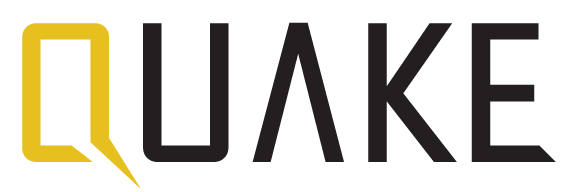As Quake’s accelerator application period draws to a close and the April 2nd deadline draws nearer, we want to highlight a few key differences between the startups that we invest in and small businesses. Thinking these two terms mean the same thing is a common misconception, which can cause entrepreneurs to move in the wrong direction when it comes to raising money and growing their companies. You won’t be able to tell the difference simply by looking at traditional factors such as how much money your company makes or how large your team is. Instead, ask yourself these questions to find out if Quake’s accelerator is right for you.
- Is your product scalable? The main difference between a startup and a small business is their vision for the future. A startup is a young version of a large company — startup founders want to make their business into the next Amazon, Facebook or Google. For this reason, their product must be able to accommodate a very large user base and grow at a fast pace while incurring low marginal costs. Great examples of scalable products are apps or SaaS (Software as a Service) companies — each additional download costs the company little or nothing to produce. A small business, on the other hand, generally intends to stay small. It might provide a product or service that is very valuable, such as consulting services or handmade clothing, but that requires a significant per-unit investment and won’t be able to be replicated on a large scale.
- Are you more focused on profits or growth? Founders of small businesses are generally very focused on generating profits as soon as possible to make their companies self-sustaining. This removes the need to take on additional debt and allows the small business owner to make his or her business a primary source of income. In contrast, startup founders focus on growth at the expense of profits. Some well-known startups, including Uber and Snapchat, actually lose incredible sums of money each year because they are more focused on re-investing their capital so they can bring on new users and grow even larger.
- Temporary or permanent? In keeping with the lines of thinking described above, most small business owners make it their main goal to keep their business up and running as long as possible. This is how they keep their dream of working for themselves and being their own boss a reality — when their company dies, they must either start a new small business, which is costly, or go back to working for someone else. Startup founders, on the other hand, are focused on an exit, which means they can cash out and reap some of the rewards of their business by selling all or a piece of it to someone else. An exit will often spell the end of the company as the founder knows it — for example, larger companies often buy startups and integrate them into their own daily operations. VCs will only want to invest in businesses that are open to these changes — venture capital funds like Quake make exits a priority for the companies they invest in because this is how we make money.
- How is your company incorporated? While small businesses are generally incorporated as LLCs, if you are a startup, the C-Corp designation will provide better legal treatment for you as you scale and grow your business. Most venture-backed businesses choose to incorporate in Delaware as it has the most favorable tax laws for startups out of all of the U.S. states.
If your business is focused on scale, growth and exits, you are a startup and venture-backed funding is right for you! If you’ve just discovered that you’re not a startup, but rather a small business, you will probably not find venture funding or an accelerator to be a good fit. This doesn’t mean that you can’t raise money for your business — it just means that other fundraising channels, like friends and family money or loans from your local bank, will be better options for both you and your investors.
Still think venture funding is right for your business? Apply to Quake LA’s Spring Accelerator by April 2nd.


